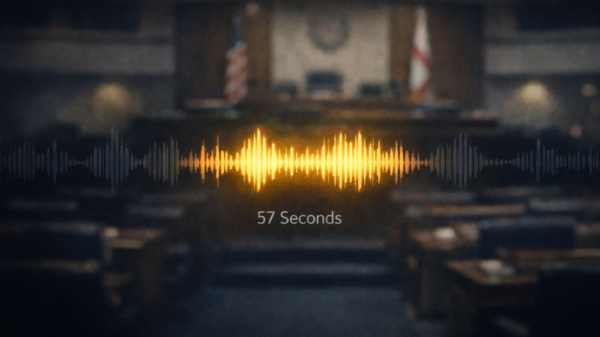To graduate the eighth grade in 1912, American students had to do more than memorize facts. They had to understand the republic they were about to inherit.
A typical exam covered grammar, geography, physiology—and, most revealingly, civil government. From the civics section:
Name and define the three branches of the government of the United States.
Give three duties of the President. What is meant by the veto power?
Define Democracy, Limited Monarchy, Absolute Monarchy, and Republic. Give examples of each.
Name two rights given by the Constitution and two rights denied Congress.
These were not questions for future lawyers or college-bound elites. They were posed to 14-year-olds, many of whom would never return to a classroom. The expectation was clear: to be a citizen in a republic, you had to understand the republic.
Now ask yourself: how many members of Alabama’s ruling political class could pass that test?
How many could define a republic, let alone defend it?
I suspect some couldn’t spell “Cerebellum,” much less explain how the Constitution limits congressional power. And yet, that hasn’t stopped them from drafting laws that restrict rights, rewrite norms and recast liberty in their own image—all while thumping the Constitution like a sacred text they’ve never read.
They shout about “freedom” as they trample it. They confuse liberty with control, pluralism with threat, and public service with personal crusade. They wield the Constitution only when it flatters their agenda—and discard it when it dares to constrain them.
Nowhere is this constitutional illiteracy more dangerous than in the erosion of checks and balances.
With barely a whisper of dissent, the U.S. Supreme Court handed down a ruling granting sweeping immunity to the presidency—an authority not found in the Constitution, never envisioned by the framers, and absent from over 200 years of law.
This was not constitutional interpretation. It was constitutional invention. A fiction crafted to shield power from accountability. A decision that belongs on the same shameful shelf as Dred Scott—law unmoored from justice, and from the republic it was meant to serve.
And the rot isn’t limited to the bench.
The Court has dodged vital questions—like whether Section 3 of the 14th Amendment disqualifies insurrectionists from office. It has entertained challenges to birthright citizenship, one of the clearest guarantees of the American promise. And Congress? It has gone mute—not because its powers were stripped away, but because its members fear backlash more than they fear betraying their oath.
The separation of powers didn’t disappear. It was abandoned.
Here in Alabama, the pattern holds. With a Republican supermajority, our ruling class passes laws better suited to a theocracy than a constitutional republic—banning books, gagging teachers, persecuting the vulnerable, and forcing religious doctrine into public life.
This is not constitutional fidelity. It is constitutional contempt.
And all the while, words like “liberal” and “democracy” send some of these lawmakers into fits of moral panic—despite holding offices they clearly don’t understand.
That eighth-grade test expected teenagers to know the roles of each branch of government. Today’s political elite either don’t know—or worse, do know, and ignore it anyway.
It brings to mind Victor Hugo’s A Fight with a Cannon, the story of a weapon that breaks loose aboard a ship in a storm. The cannon, unanchored and out of control, smashes everything in its path. “A cannon loose in a ship is something terrible,” Hugo wrote. “It is all the strength of man turned against himself.”
That is politics without principle. Government driven by envy and grievance. “The cannon was no longer a gun; it was a monster.”
But the story doesn’t end there. One man steps forward—not without fear, but with resolve. “The man had let the cannon loose, and the man had caught it again.”
That is the uneasy hope in every democratic moment: that someone will seize the courage to reclaim what’s been unleashed.
Politics will always be dangerous. It is made of human will—and human will is flawed. But when guided by knowledge, conscience and a steady hand, it can be salvaged. It can still serve.
So let’s start with something simple: before they write the laws the rest of us must live by, maybe the ruling class should have to pass the same civics test once required of 14-year-olds.
Because if they can’t meet that standard, they have no business holding the pen.


















































